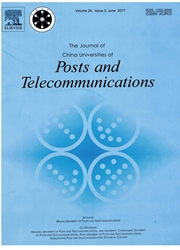

 中文摘要:
中文摘要:
会话开始协议(啜) 在 IP 多媒体分系统(IMS ) 被用作发信号的协议,发信号正在变得计算集中比作当前的电信网络。啜是有无序、冗长的头,可变尺寸的消息,和忽略大小写的关键词的特征的一个基于文章的协议。它为处理的一条有效消息强加挑战。能快速处理啜消息的啜元素的性质为 IMS 网络的表演是批评的。这篇文章调查在啜服务器处理的啜消息的性能,主要集中于改进消息由介绍一个方法分析依照啜消息(SP4SIP ) 命名选择分析。由与一个双人脚踏车杰克逊网络为一个啜服务器建模并且分析,分析消息是啜服务器表演的瓶颈,这被结束,即,在系统处理集中的活动是大多数的。验证途径,它在作者的实验室在一个高效的啜服务者被实现了。结果证明为啜消息的选择分析能确实减少处理时间。
 英文摘要:
英文摘要:
The session initiation protocol (SIP) is used as the signaling protocol in the IP multimedia subsystem (IMS) and the signaling is becoming computing intensive comparing to the current telecommunication network. The SIP is a text-based protocol with characteristics of unordered and verbose headers, variable-size message, and case-insensitive keyword. It imposes challenges for an efficient message processing. The property of SIP elements being able to process SIP messages quickly is critical for the performance of IMS networks. This article investigates the performance of SIP message processed in SIP servers, mainly focusing on improving message parsing by introducing a method named selective parsing for SIP message (SP4SIP). By modeling and analyzing a SIP server with a tandem Jackson network, it is concluded that parsing messages is the bottleneck of a SIP server performance, i.e., it is the most processing intensive activity in the system. To validate the approach, it has been implemented in a high-performance SIP server in the authors' lab. The results show that selective parsing for SIP message can indeed reduce processing time.
 同期刊论文项目
同期刊论文项目
 同项目期刊论文
同项目期刊论文
 期刊信息
期刊信息
